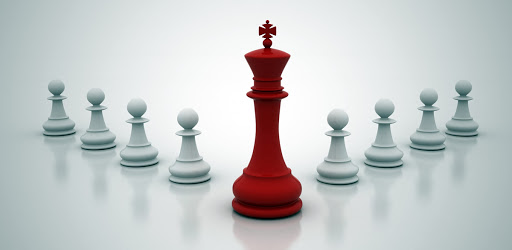“Body language” is regarded as a non-verbal form of communication which can be identified in humans who replace words as a means of conveying their feelings consciously or subconsciously. Body language includes facial expressions, body posture, gestures, eye movements, and touch. The ability to understand and interpret these various forms helps to pick up unspoken issues, or ease negative feelings in others. In truth, body language provides an amazing amount of information on what other people are thinking. Current research concludes that only seven per cent of communication is based upon actual words; 38 per cent comes from tone of voice, and the remaining 55 per cent from body language.
Learning how to become aware of and interpret the 55 per cent is of vitally important in analysing people. Specialists in the field claim there are eight major signs to watch for. Firstly, crossed arms and legs suggest a person isn’t receptive to whatever you are saying. Even if they smile and engage a in pleasant conversation, poor body language will give them away. When it comes to smiling, mouths can lie but eyes can’t. People often smile to hide what they really think, so it’s always good to look at the corners of people’s eyes when smiling. If they aren’t wrinkled then the smile is hiding something. Real smiles crinkle the eyes. It’s also important to understand that if someone copies your body language, then it’s a good sign which means there is a bond between both of you.
Posture is another good indication of body language because the human brain is hardwired to equate power with the amount of space people take up. Standing straight with shoulders back is a power position, while a slouch projects weakness. Eyes that lie are also a very important part of body language. The expression “look me in the eye!” is based on the assumption that it’s not easy to hold someone gaze if you are lying to them. Raising eyebrows is supposed to be a signal of discomfort or surprise. If eyebrows are raised and the topic isn’t one which would logically cause surprise, then something else is going on.
Body language can also indicate a plea for approval. When the person you are talking to keeps nodding excessively, it’s supposed to mean that they are worried about what you think of them. Lastly, a clenched jaw, tightened neck or furrowed eyebrows indicate stress. The bottom line is that even if you can’t read people’s exact thoughts, you can learn lots about them from their body language.
Recently, behavioural scientists have been airing views on our president’s body language. They claim he shows signs that he loves the global stage. They display photographs which show that whenever he is photographed leaving the country, he smiles, happily waving goodbye. However, when he is photographed upon his return to these shores, he has a sullen look on his face. Apparently this indicates that home isn’t a paradise for him and he clearly feels more relaxed and comfortable when he is overseas and being feted with state protocol. Critics say that even when South Africans were killing Nigerians and looting their shops, our president flew there to inspect military parades and enjoy gun salutes, without openly castigating South Africans for their unjustifiable hostility towards Nigerians. Even after former US President Donald Trump referred to Nigerian US immigrants as refusing to return to their “huts in Africa” and also referred to all African countries “sh#t-hole nations,” our president was more than happy for a photo-op with Trump who after he had left ended up making disparaging statements about his body language.
Despite pre-election promises to dispense with our presidential fleet, President Buhari hardly misses an opportunity to fly out of the country. This is in stark contrast to his unimpressive record of internal flights to commiserate with victims of major disasters which all presidents are expected to do. It’s also been noted several times that in terms of body language, our president only gives occasional scornful interviews to local press, preferring to talk to foreigners at every opportunity despite their hostile responses towards him. Ironically, our president recently attended a World Conference on Peace and Unity.
Although it’s accepted that his love of foreign trips often serves as clandestine ways of travelling to see his doctors, his spoken word and unspoken bid language were causes for concern. He told the world that Nigeria has been more peaceful during his administration than before he came to office in 2015! He is entitled to his opinion. However, his body language made his resistance to any discussion about the rampaging herdsmen very clear.
A trending social media video in which he appears alongside French President Emmanuel Macron for a joint interview concerns a Channels TV reporter Gloria Umeh Eze asking Macron: “What plans do you have to curb terrorism in Africa and more specifically curb herdsmen and farmers crisis in Nigeria?” While the question was being asked, both Macron and Buhari were looking in Gloria’s direction but as soon as our president heard the words “herder and farmers crisis,” he turned away and by the time Macron was ready to reply and look towards Buhari, all he saw was the back of our president’s head! Many social media commentators said the reaction reminded them of how old men behave when dry bones are mentioned! There is a plea that after flying all the way to Paris to discuss peace and unity, he should also try harder to reach out to his real and imaginary enemies at home. As all sorts of elections loom on the horizon, Nigerian should realise that the body language of a man who lost through honest campaigning, is completely different from one who lost after having spent a fortune bribing people! Political aspirants who adopt know-all attitude and speak down to people are seldom ever successful in governance. It has become imperative that in order to elect good leadership, Nigerians should learn not only to listen to what aspirants say, but also to study their body language to understand what they actually feel but are not saying.

 Join Daily Trust WhatsApp Community For Quick Access To News and Happenings Around You.
Join Daily Trust WhatsApp Community For Quick Access To News and Happenings Around You.


